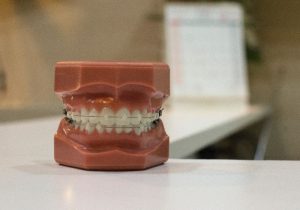ORTHODONTIST
What is an orthodontist?
Orthodontists are dentists who specialise in the development, prevention and correction of problems in the positioning of the teeth, ‘bite’, or the way that the teeth close together, and jaw. Any dentist registered as such with the General Dental Council (GDC) can work in orthodontics. However, only those who are included on the GDC’s Specialist Orthodontics List can call themselves ‘orthodontic specialists’ or ‘specialist orthodontists’. In order to be included on a specialist list, dentists must undergo certain minimum standards of specialist training.
When to see an orthodontist?
It is recommended that you consult an orthodontist if you are experiencing explicit, visual problems with your teeth such as crooked teeth, overlapping teeth or teeth pointing forwards. Additionally, if you have issues concerning speech, swallowing or chewing, an orthodontist may be able to help. An orthodontist can also provide treatment for health problems such as obstructive sleep apnoea and cleft lip. Orthodontic treatment is recommended to start once a child’s adult teeth have fully come through – usually around twelve years old, although this is dependent on not only the number of adult teeth, but the growth of the face and jaw. Orthodontic treatment is available for adults too, but the variety of treatments is more limited.
WHAT DOES AN ORTHODONTIST TREAT?
- Crooked Teeth
- Dental Crowding
- Misaligned Teeth
- Protruding Teeth
WHAT DOES AN ORTHODONTIST DO?
- Braces
- Cosmetic Dentistry
- Invisalign (Clear Braces)
- Retainers
